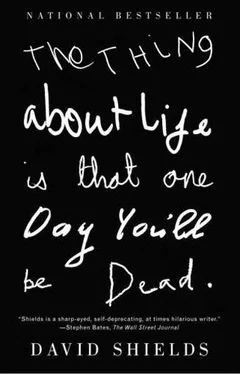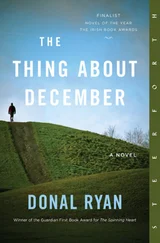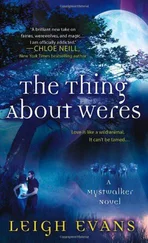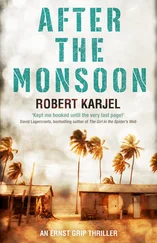At 31, Tolstoy said, “At our age, when you have reached, not merely by the process of thought but with your whole being and your whole life, an awareness of the uselessness and impossibility of seeking enjoyment; when you feel that what seemed like torture has become the only substance of life—work and toil—then searchings, anguish, dissatisfaction with yourself, remorse, etc.—the attributes of youth—are inappropriate and useless.”
Before being guillotined, Camille Desmoulins, one of the leaders of the French Revolution, when asked how old he was (he was 34), said, “I am 33—the age of the good sans-culotte Jesus, an age fatal to revolutionists.”
By age 35, nearly everyone shows some of the signs of aging, such as graying hair, wrinkles, less strength, less speed, stiffening in the walls of the central arteries, degeneration of the heart’s blood vessels, diminished blood supply to the brain, elevated blood pressure. In my father’s case, the only sign of aging at 35 was a rapidly receding hairline. One out of three American adults has high blood pressure. The maximum rate your heart can attain is your age subtracted from 220 and therefore falls by one beat every year. Your heart is continually becoming a less efficient pumping machine.
You couldn’t prove this decline in efficiency by my dad, who, until his early 90s, would awake in darkness in order to lace up his sneakers and tug on his jogging suit. Birds would be just starting to call; black would still streak the colored-pencil soft blue of the sky: my father would be jogging. In an hour, he’d run 20 (then, when he got older, 15 and, later, 10) times around a track that was without bleachers or lighting or lanes, that had weeds in the center and a dry water fountain at the end of the far straightaway and a running path littered with glass and rocks. He didn’t care. He pounded his feet through the dirt and pumped his arms and kept his rubbery legs moving until, by the very stomping of his feet, night withdrew and morning came. As he once wrote me, apropos of nothing in particular, “I am, no surprise, that same skinny kid who ran with the speed of Pegasus through Brownsville’s streets in quest of a baseball.”
Rheumatoid arthritis most frequently begins between ages 35 and 55.
In 1907, the French writer Paul Léautaud, at 36, said, “I was asked the other day, ‘What are you doing nowadays?’ ‘I’m busy growing older,’ I answered.”
In My Dinner with André, Wallace Shawn says, “I grew up on the Upper East Side, and when I was ten years old I was rich, an aristocrat, riding around in taxis, surrounded by comfort, and all I thought about was art and music. Now I’m thirty-six, and all I think about is money.”
Mozart died at 35; Byron, at 36; Raphael and Van Gogh, at 37.
James Boswell, Samuel Johnson’s biographer, said, “I must fairly acknowledge that in my opinion the disagreement between young men and old is owing rather to the fault of the latter than of the former. Young men, though keen and impetuous, are usually very well disposed to receive the counsels of the old, if they are treated with gentleness, but old men forget in a wonderful degree their own feelings in the early part of life.” When Boswell wrote this, he was 37 and Samuel Johnson was 69. Whenever I mention an accomplishment of mine to my father, he quickly changes the subject or mentions a more impressive accomplishment by someone else. I asked him once whether, in his view, competition was built into any relationship between father and son, and he briskly denied it, saying he’s never felt anything except pride and admiration.
London Symphony Orchestra conductor Colin Davis said, at 38, “I think that to so many what happens is the death of ambition in the conventional sense. That great driving motor that prods you and exasperates you and brings out the worst qualities in you for about twenty years is beginning to be a bit moth-eaten and tired. I find that I’m altogether much quieter, I think. I don’t love music any less, but there’s not the excess of energy I used to spend in enthusiasm and in intoxication. I feel much freer than I’ve ever been in my life.”
The oldest person ever to hold a boxing title was 38. The oldest person ever to play in the NBA was 43. The oldest age at which anyone broke a track-and-field record was 41, in 1909. The oldest person to win an Olympic gold medal was 42, in 1920. In the prologue to The Canterbury Tales, Chaucer wrote, “If gold ruste, what shal iren do?”
At age 40, your preference for fast-paced activity declines.
Beginning at 40, your white blood cells, which fight cancer and infectious diseases, have a lowered capacity.
Jack London died at 40; Elvis Presley, at 42.
On my 30th birthday, under my girlfriend’s influence, I got my left ear pierced and bought a diamond earring. I wore various earrings over the next 10 years or so, but wearing an earring never really worked for me. Earrings forced me to confront the nature of my style, or lack of style. I’m certainly not macho enough to wear an earring as if I were a tough guy, but neither am I effeminate enough to wear an earring in my right ear as if I were maybe gay-in-training. Instead, I’m just muddling through, and the earring forced me, over time, to see this, acknowledge it, and respond to it. On my 40th birthday, under the influence of Natalie, who thought it made me look like a pirate, I took out the earring I was then wearing—a gold hoop—and haven’t worn an earring since.
F. Scott Fitzgerald, who died at 44, wrote in his notebook, “Drunk at 20, wrecked at 30, dead at 40.”
Each year, more fat gets deposited in the walls of medium and larger arteries, causing the arterial walls to narrow. The weight of your small intestine decreases; the volume and weight of your kidneys shrink. Total blood flow to the kidney decreases by 10 percent for every decade after the age of 40. Every organ will eventually get less nourishment than it needs to do its job.
Don Marquis, an American newspaper columnist who died at 59, said, “Forty and forty-five are bad enough; fifty is simply hell to face; fifteen minutes after that you are sixty; and then in ten minutes more you are eighty-five.”
“Forty-five,” said Joseph Conrad, “is the age of recklessness for many men, as if in defiance of the decay and death waiting with open arms in the sinister valley at the bottom of the inevitable hill.” Those clichés of male midlife crisis—having an affair, for instance, or buying a red sports car—are, on a biological level, anyway, profound rebellions of the “rage, rage, against the dying of the light” sort. My father’s first marriage broke apart when he had an affair with his gorgeous, red-haired secretary at the Jewish Federation of Greater Los Angeles, one picture of whom appeared—somewhat bizarrely—in our family photo album.
Cicero said, “Old age begins at forty-six.” He died at 53.
John Kennedy died at 46.
Virginia Woolf said, “Control of life is what one should learn now: its economic management. I feel cautious, like a poor person, now I am forty-six.”
Victor Hugo said, “Forty is the old age of youth. Fifty is the youth of old age.”
On my 10th birthday, when my father was 56, he pitched so hard to me and my friends that we were afraid to hit against him. “Get in the batter’s box,” he growled at us.
Bloodline to Star Power (ii)
In 1955, my parents were living in Los Angeles, my mother was working for the ACLU, and she asked my father to ask Joseph Schildkraut to participate in an ACLU-sponsored memorial to Albert Einstein, who had died in April. “After all,” my father wrote in reply to one of my innumerable requests for more information, “Einstein was a German Jew and Pepi [Schildkraut’s nickname] had spent so much of his professional life in Berlin and was a member of a group of prominent people who had fled Germany in the years before Hitler and lived in the Pacific Palisades–Santa Monica area.”
Читать дальше












